Google buys startup that finds cleanest routes for walkers and drivers
The next time you use an app to find the quickest route, you may also be able to choose the one that is least polluted.
BreezoMeter, an Israeli startup that monitors hyperlocal air quality, has just been bought by Google, for a reported $200 million-plus, it was revealed yesterday.
The company, founded in 2014, combines data from government air monitoring stations with measurements from over 50,000 additional sources globally, including satellite, weather and traffic data.
Using AI and machine-learning algorithms it is able to track levels of pollution street-by-street – accurate down to five meters (16 feet) – and hour-by-hour.
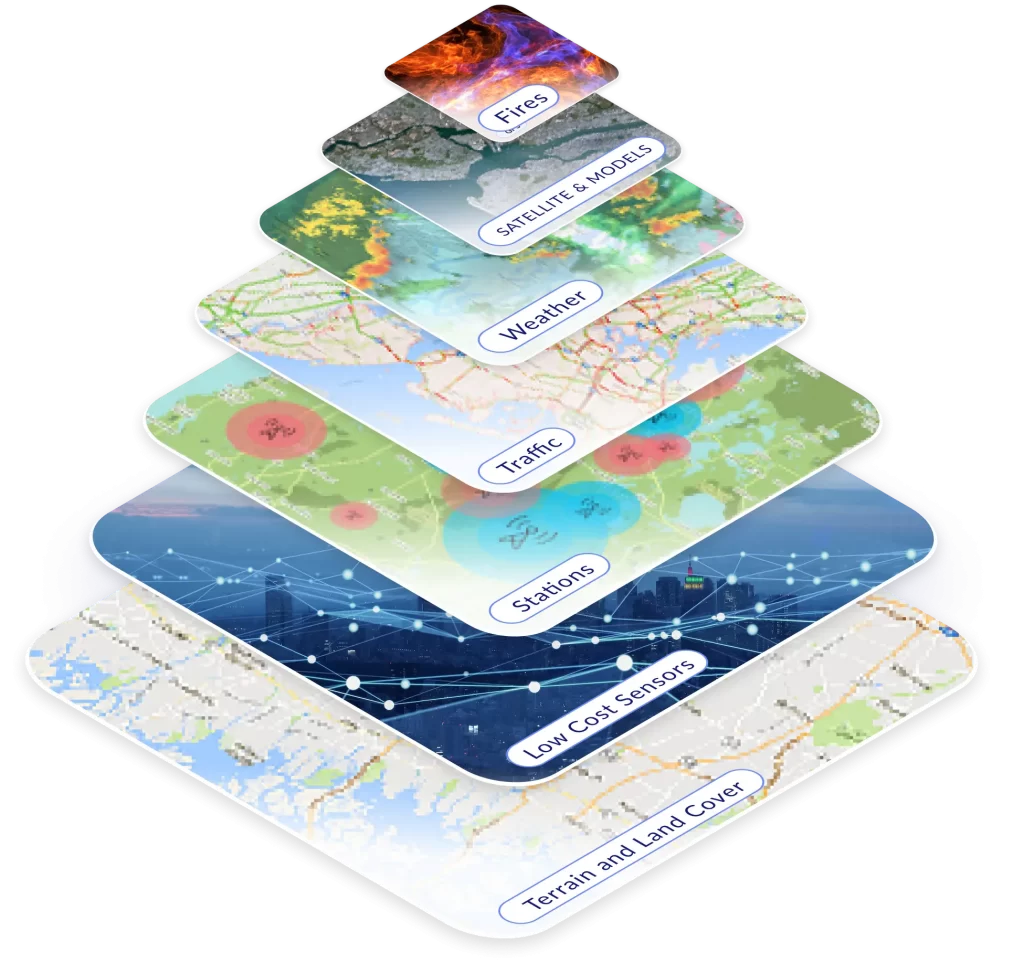
Its new Cleanest Route feature suggests the least polluted route not only for walkers and cyclists but also for motorists, who are actually exposed to higher levels of pollution as they sit behind the wheel.
BreezoMeter analyzes individual walking or driving routes and scores them from 0 to 100, based on measures of air pollution, pollen and smoke.
It allows asthmatics and others with lung diseases to find the cleanest routes to get from place to place, and avoid asthma attacks or respiratory flare-ups.
“Our mission is to improve the health and safety of millions of people by reducing their exposure to environmental hazards,” Tamir Kessel, Head of Business Development and Strategy at BreezoMeter, tells NoCamels.
“And we do that by making highly accurate hyperlocal information about hazards such as air pollution, pollen and wildfires available.”
Google yesterday (20 September) confirmed it had acquired BreezoMeter for an undisclosed sum, saying that after many years of activity in sectors such as environmental insights, Google Earth Engine, Explorer, and the Air View project, it was “excited to continue and provide environmental insights to people, organizations, and policymakers across the world”.
Air quality, unlike weather, can vary drastically in time and space, but existing indices rely on information from a small number of government air monitoring stations, which is only updated every few hours and measures only a limited number of pollutants.
Their stations are mostly for regulatory planning and for analyzing long term trends, rather than for real-time updates.
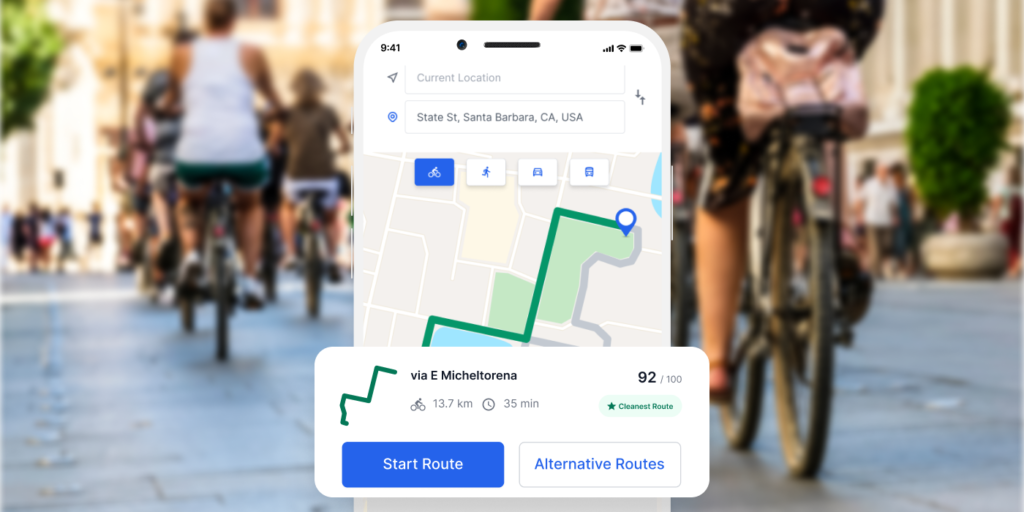
BreezoMeter continuously checks the accuracy of its air quality calculations by comparing its outputs to the factual readings given by governmental monitoring stations. Its technology is available to brands via API (Application Programming Interface), meaning it can be embedded directly into their products.
Its AI uses cross validation, a statistical method of evaluating and comparing learning algorithms by dividing data into two segments: one used to learn or train a model and the other used to validate the model.
“Organizations today are looking to become more climate aware and climate resilient, and to inject that climate awareness and resiliency into their products.” says Kessel.
Sign up for our free weekly newsletter
SubscribeThe real-time air quality data, which updates hourly and is available in 70 countries, has already been integrated by leading brands across healthcare, automotive and cosmetic industries.
For example, Cowboy, a Belgium-based electric bike company, has partnered with BreezoMeter to integrate its data into its connected app.
Its electric bike riders can see cleaner routes as an alternative to the fastest route to their destination, as well as a real-time heatmap of air quality data when opening the app.
BreezoMeter’s hyperlocal air quality data is currently also available in the Apple and Yahoo weather apps, when viewing locations in the US, UK, Germany, India, and Mexico. They include pollutant and pollen levels, and health-related recommendations for sensitive populations.
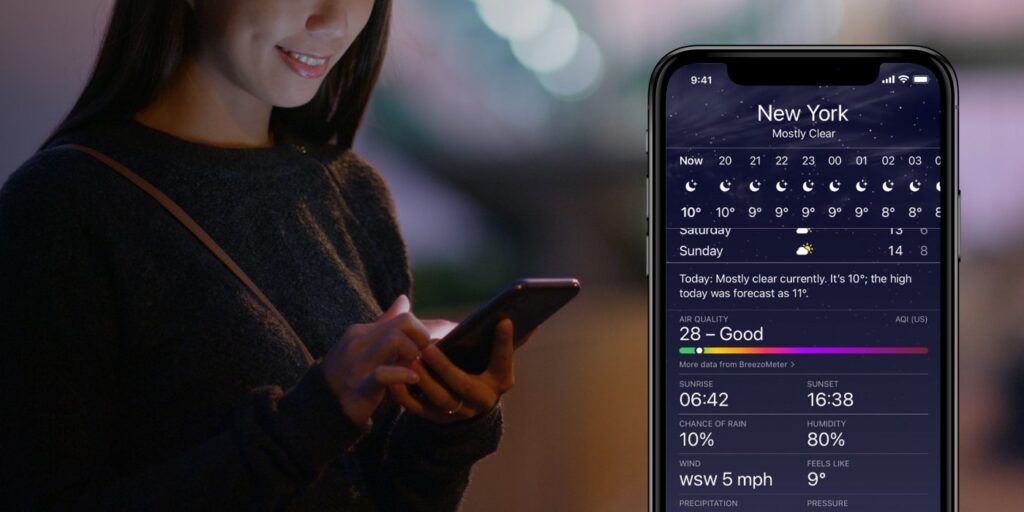
The Haifa-based company’s geolocation data is used for other applications as well, including a L’Oréal cosmetics device that determines which environmental conditions might influence a user’s skin.
“Our data can now be integrated into any mobility or car navigation application to protect yourself and your family against the impacts of air pollution,” Kessel tells NoCamels.
According to academic research, drivers are actually exposed to higher concentrations of pollutants inside their vehicles than those traveling by bike or on foot.
A vehicle’s in-cabin air quality can be impacted by external factors, including pollutants in traffic like PM2.5 – particulate matter that is small enough to enter people’s respiratory systems unnoticed, posing serious short-term and long-term health risks.
BreezoMeter already works with Volvo, Nissan, and the Indian automotive company Tata Motors.
“When you’re sitting in traffic, even with the sort of filters you have in the car, the inside of the cabin is just accumulating toxins all the time,” says Kessel.
“In the same way that navigation in the car takes you to the quickest route, you will be able to now go to the cleanest route and breathe the cleanest air.”
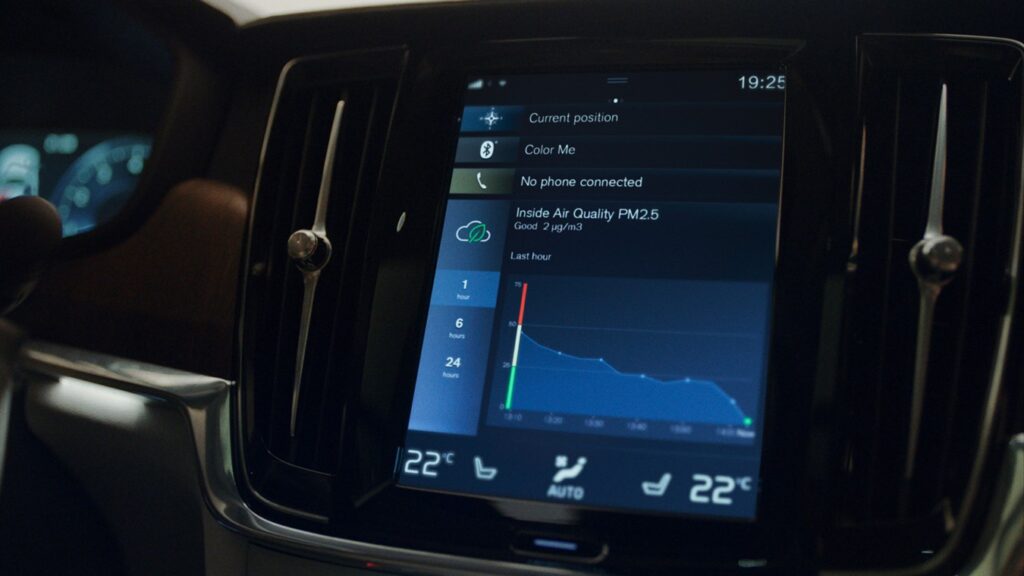
Some of the car makers using BreezoMeter’s APIs will soon automatically act on the air quality information they receive. When the vehicle recognizes that the driver is entering an especially polluted area, the climate control system will automatically stop bringing air in from the outside and circulate air in the cabin.
“And so the car can be integrated with performance data in real time, warning the driver to open and close their windows. That’s just another use case of the API being used to protect and determine the cleanest and safest route.”
BreezoMeter is currently working on generating more actionable insights from the data it processes for different areas of operation, such as real estate.
Related posts

Editors’ & Readers’ Choice: 10 Favorite NoCamels Articles

Forward Facing: What Does The Future Hold For Israeli High-Tech?

Impact Innovation: Israeli Startups That Could Shape Our Future


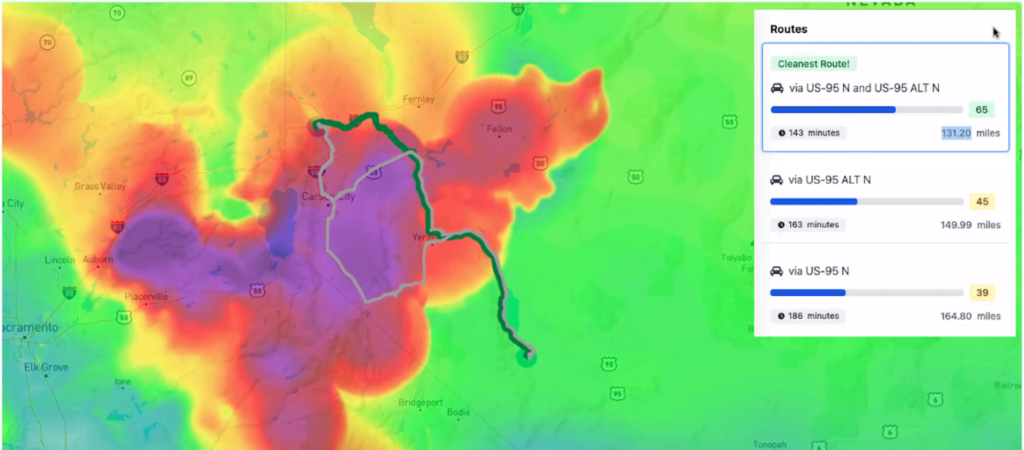

Facebook comments